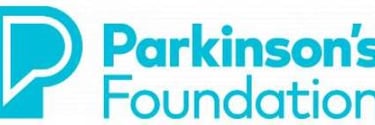A Landmark Victory for the Parkinson’s Community: EPA Bans Trichloroethylene
December 9, 2024
TCE Researchers first connected TCE exposure to Parkinson’s in the late 1990s. As with rotenone, the primary way TCE is thought to trigger Parkinson’s is by affecting mitochondria. TCE is used in more applications than paraquat and rotenone, so more people are exposed to it.
Some uses for TCE include—
Degreasing
Decaffeination—until 1977
General anesthetic—until 1977
Refrigerant production
Spot cleaning in dry cleaning services
Textile production and dyeing
AI Overview
Has Canada banned TCE?
No, Canada has not banned trichloroethylene (TCE), but it has taken steps to reduce its use and release into the environment:
Production: Canada stopped producing TCE in 1985.
Regulations: The Canadian Environmental Protection Act of 1999 includes solvent degreasing regulations that aim to reduce the use and release of TCE. These regulations include requirements for more efficient dry cleaning machines, preventing spills, and managing waste water.
Toxic substances list: TCE is on the Government of Canada's list of toxic substances.
Soil quality guidelines: Canada has soil quality guidelines for TCE to protect human health and the environment.
Food preparation: TCE has been banned from food preparation in Canada since 1977.
TCE is still used in Canada as a solvent to clean metal parts, and it's also imported into the country. It's also used in other industries, such as textile processing and dry cleaning. TCE can be found in indoor air, drinking water, surface water, and groundwater across Canada.
A new treatment option for advanced Parkinson's disease is now available called VYALEV. This treatment is the first and only 24-hour subcutaneous (under the skin) levodopa-based infusion therapy in Canada, to support the management of severe motor fluctuations and hyper-/dyskinesia.
November 22, 2024
Whistling past the graveyard: EPA ignores science linking paraquat to Parkinson’s disease
February 2024
Paraquat, a potent herbicide known for its effectiveness in controlling weeds, has been associated with serious health risks, including a potential link to Parkinson's disease. In Canada, the primary product containing paraquat was Gramoxone®, used predominantly in agricultural settings.
Recently, the manufacturer of Gramoxone® voluntarily discontinued its registration in Canada.
Given these developments, paraquat is no longer in use in Canada.
“The EPA freely admits that the agency has ignored 90 articles of evidence, including scientific studies, but continues to insist that Parkinson’s is ‘not an expected result’ of exposure to this toxic weedkiller,” said Scott Faber, EWG’s senior vice president for government affairs.
Switzerland:
Manufacturing and Export: Syngenta, a Swiss-based agribusiness, became a major producer of paraquat. Despite being banned for use within Switzerland due to health concerns, Syngenta continued to manufacture and export paraquat to other countries
China:
Production and Ban: China emerged as one of the world's largest manufacturers of paraquat, with production increasing over the years. However, due to health and environmental concerns, China banned the domestic use of paraquat in 2017, although production for export continued.





